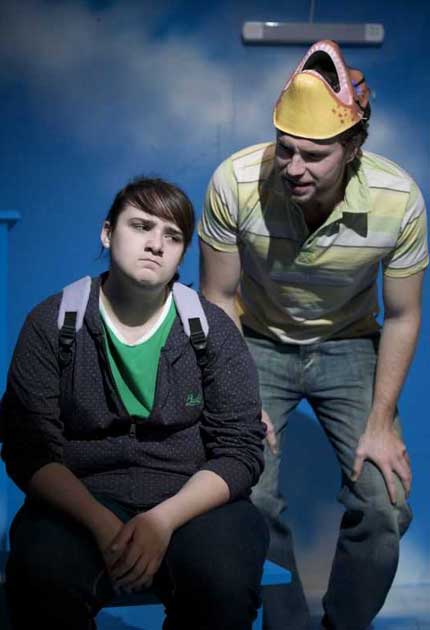Seize The Day, Tricycle Theatre, London
Smooth operators tick all the boxes

Your support helps us to tell the story
From reproductive rights to climate change to Big Tech, The Independent is on the ground when the story is developing. Whether it's investigating the financials of Elon Musk's pro-Trump PAC or producing our latest documentary, 'The A Word', which shines a light on the American women fighting for reproductive rights, we know how important it is to parse out the facts from the messaging.
At such a critical moment in US history, we need reporters on the ground. Your donation allows us to keep sending journalists to speak to both sides of the story.
The Independent is trusted by Americans across the entire political spectrum. And unlike many other quality news outlets, we choose not to lock Americans out of our reporting and analysis with paywalls. We believe quality journalism should be available to everyone, paid for by those who can afford it.
Your support makes all the difference.If I were the Labour MP and former Culture Minister David Lammy, I'd be disappointed not to be namechecked in Kwame Kwei-Armah's entertaining new play about the real possibility of a new black mayor for London.
After all, the other positive exemplars of black politicians in the campaign to install black television celebrity Jeremy Charles in what I used to think of in Ken Livingstone's day as the leaning tower of geezer by the Thames are touted as "Bernie, Paul, Diane, Trevor and me..." (ie Grant, Boateng, Abbott, Phillips and Kwei-Armah's fictional fixer Howard Jones).
As it happens, Jeremy Charles turns out to be too decent a chap for the job and far too implausibly a pawn in the game. He discovers that the reality of politics demands unreasonable compromise, and he chickens out, a more suitable candidate for backbench fodder, not high-profile civic office.
Despite this flaw, the play sets itself up as a compelling David Hare-style moral debate – and I mean that as a compliment – between Jeremy, his campaign advisers, his unsettled white wife (Amelia Lowdell) and his sexy new black girlfriend (Sharon Duncan-Brewster).
Jeremy, played with troubled urgency and some panache by a fit-looking Kobna Holdbrook-Smith, is adopted as a candidate after flooring a knife-bearing black hooligan in an outside broadcast. His celebrity rating soars and the more obvious, sober-sided Indian mayoral nominee (whom we never see) is quietly pushed aside. But Jeremy complicates matters by becoming a probation mentor to the 17-year-old tearaway.
Even worse, from the campaign point of view, he adopts the boy's personal cause of trying to achieve the release of an uncle who's been suddenly kidnapped in the Middle East. "We don't do Israel," exclaims Jaye Griffiths's sleek black operator and part-time soothing masseuse, after the team has failed to convince Jeremy he should front a rape documentary.
The language of political image-building has a horrible ring of truth and Jeremy finds himself stranded between good intentions and political expediency. But his best possible option is hanging in at street level, after a blistering scene when he visits the boy's home and is given a lecture in class and colour wars by the boy's mother, articulated with unanswerable conviction by Cecilia Noble.
The show has a sharp-edged clarity in both argument and staging on a minimal design by Rosa Maggiora that allows a telling use of video projections, one of which includes Diane Abbott herself (who was in the first-night audience) addressing a black role-model conference.
The play is important because of the issues it raises in how the black community should or should not adjust its sights and aspirations in a white political culture, and Kwei-Armah's proven gift for dialogue and dramatic confrontation – though the structure is here occasionally clunky – ensures that this rare black middle-class comedy hits home.
Outstanding performances by Aml Ameen as the initially obstreperous Lavelle, not such a bad boy after all, and Karl Collins as the jaw-droppingly repellent fixer Howard draw Jeremy towards the inner springs of self-knowledge, and the play finally carries a satisfying narrative punch.
Will London have a black mayor soon? The assumption is that anyone can do the job – "Boris has just shown you can walk in off the street" – and the play suggests, a little outrageously, that there is more to it than fixing the transport and making the parks look pretty. Even Boris knows that, surely.
Still, this exciting and ambitious season of Not Black and White plays is another big feather in the Tricycle's cap this year, following The Great Game: Afghanistan series of short plays in April.
To 17 December (020-7328 1000)
Join our commenting forum
Join thought-provoking conversations, follow other Independent readers and see their replies
Comments